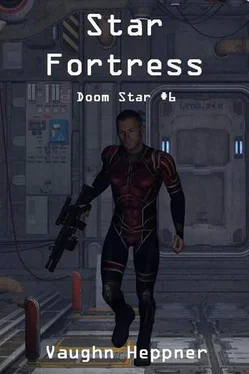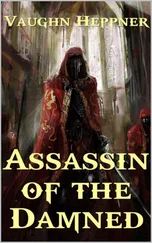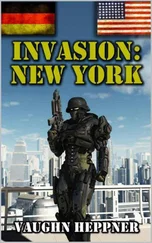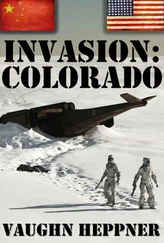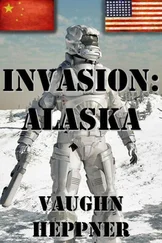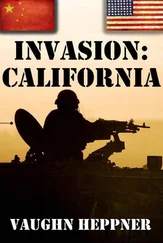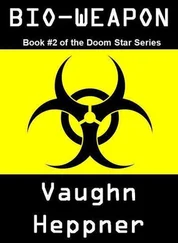“Have you considered the possibility that it will prove impossible to free our marines?”
“No,” Marten said.
“Perhaps we should bypass Athens and head for a launch-site under Cone’s control. Let’s get off Earth while we can.”
Marten shook his head.
“You have lost soldiers and friends before,” Osadar said. “Our goal is bigger than a few marines.”
Marten scowled. “I’m tired of seeing my friends die.” He pulled out his gun, hefting it thoughtfully. Then he shoved it back into its holster. “We’re going in and rescuing them.”
“How can we achieve this miracle?” Osadar asked. “We are three people against a city of millions.”
“You forget. I’m the Jovian Representative.”
“Your title failed to impress Juba-Ryder.”
“The Director of Greece Sector wants to stay neutral,” Marten said. “That’s the key.”
“Delos’s neutrality makes her actions predictable,” Osadar said. “She will continue to detain our marines to keep Backus’s people happy, and she will please Cone by refusing to hand them over to an SU tribunal.”
Marten was afraid that Osadar was right. Social Unity…nothing ever changed. Men mouthed pious slogans and then acted as they pleased. Equality for all. Yet the hall leaders, the police chiefs and directors, they lived like princes, dictating to everyone else. If everything was so good under Social Unity, why the need for shock batons, punishment details in the slime pits and torture in the glass tubes? If socialized men were so superior, why did some starve and others become fat on good food? Why did the leaders bicker for supremacy? Why were there so many checkpoints, ID cards, half-truths and endless coercion?
“We have one power,” Marten said. “No, we have two.”
“Do you care to enumerate them?” Osadar asked.
“I need to speak with Cone. Can you patch me through to her?”
“The automated ship has given us anonymity, allowed us to travel unseen. Broadcasting in the open might jeopardize that.”
“Can you do it?” Marten asked.
Osadar swiveled to the computer. “The key is our priority clearance, which is linked to the Security Specialist’s code.” Osadar began to tap the screen. It took a little over an hour, but finally she turned to Marten.
“Are you ready for the Security Specialist?” Osadar asked.
Marten had been listening the last few minutes as Osadar spoke to increasingly powerful underlings. Now he was going to get his chance to speak with Cone. He shoved a crate near Osadar, sitting down and moving the computer screen to face him. Maybe twenty seconds later, Cone appeared.
She wore sunglasses, had slicked-back hair and sat before a sunburst symbol. “Marten Kluge?” she asked, sounding surprised.
“Thank you for speaking with me,” Marten said.
Cone’s lips twisted into a half-grin. “The reports of your death are highly exaggerated, it appears. I was told you were dead, killed during a train hijacking.”
“Who gave you the report?”
“Does it matter?” Cone asked.
“Did they tell you a cyborg killed the PHC terrorists?”
Cone frowned. “Do you have a point?”
“I’m on my way to Greece Sector.”
“Where are you now?”
“I understand that you’re in a difficult situation,” Marten said. “With Hawthorne’s removal, the upheaval has begun. It comes at the worst possible moment: when humanity is about to launch its counter-offensive. My space marines represent a tiny portion of that combined force, but they do represent an earnest of Jovian cooperation with the rest of humanity. Who knows when Jovian warships might hold a critical advantage for the rest of humanity?”
Cone held up a hand. “My time is short, as you’ve correctly surmised by going straight to the point. You want help freeing your marines. Is that right?”
“I’m trying to convince you of their importance.”
“Civil war has broken out, Force-Leader. I can hardly concern myself with one hundred marines.”
Marten shook his head. “For your own sake, you must do everything you can to keep my Jovians out of Backus’s hands. It he shoots them…if he publicly tries them and brings them before a videoed firing squad—”
“Hmm, yes,” Cone said, interrupting. “That would stir the masses and show his apparent strength and my weakness. Yes, I see what you mean.” She pursed her lips. “Greece Sector is rather small and unimportant compared to more pressing matters. I don’t know how to pressure Director Delos any more than I already am.”
“I’m not asking for that.”
“What are you asking for then?”
“Call Director Delos,” Marten said. “Show her the latest video from Jupiter. Remind her that humanity’s back is against the wall. Promise her more grain shipments if she will simply do her duty and free Social Unity’s allies.”
“Grain is difficult to come by these days.”
“It is hard currency during a famine,” Marten said. “That’s why you should offer it. I suppose I could point out that promises are not the same as shipments, but I’m not going to do that.”
Cone’s eyebrows lifted. “I did not realize you were an intriguer.”
“I’m not,” Marten said. “I’m desperate. I’m tired of running away and even more tired of losing. I want my Jovians and then I want to hit the enemy hard.”
“Yes, yes, we must fight the greater enemy. Your point is valid. Suppose I give you a hundred commandos to take with you into space, would that be enough?”
“I appreciate the offer, but I want my trained space marines.”
“We don’t all get what we want.”
“True,” Marten said. “The key is that my marines have been fighting cyborgs a long time now. They’re veterans against a foe who usually kills everyone. My marines have fought on Carme, on Athena Station—those names may not mean much to you, but they were hellholes. The veterans who survived those places: their fighting knowledge may make a great difference someday soon.”
“Doubtful,” said Cone. “It’s what they represent that is critical. If Backus should acquire them… I will do as you request, Force-Leader. How soon until you reach Greece Sector?”
“Several hours,” Marten said.
Cone turned, listening to someone off-screen. When she faced Marten again, she said, “An automated cargo vessel—very clever, Force-Leader, and resourceful. Once again, I wish you luck.”
“And I you,” Marten said.
Cone nodded, rising as the connection ended.
* * *
Twenty peacekeepers in riot gear waited for Marten, Nadia and Osadar in Piraeus, Athens’s port. Each of the police hefted a machine pistol as they stood on the nearing pier.
“Notice,” Osadar said from the cargo vessel’s deck. “They lack shock batons.”
“They’re Director Delos’s troops ,” Marten said.
“They are police.”
“It shows you why Cone has any chance at all,” Marten said.
It had been like that in New Baghdad: few military personnel in the city. The reason was that Hawthorne hadn’t wanted the military caught underground, nor had he wanted them to fraternize with the people, in case he needed the military to put down rioters. The independent Soviets a year ago had shown the Supreme Commander the answer to dealing with citywide rebellion. Until now, Hawthorne’s method had worked. It meant that most military personnel were on bases instead of in the cities. Hawthorne had wanted the military were he could maneuver them against invading Highborn. It meant the directors had little access to military personnel, although they had large police forces.
As the ship docked, a police officer jumped onto the vessel’s deck. He had one thick eyebrow, with a chinstrap holding his red helmet in place. He alone lacked a machine pistol, although he had a regular gun holstered at his side.
Читать дальше
